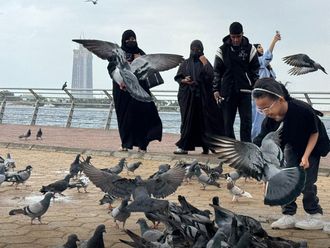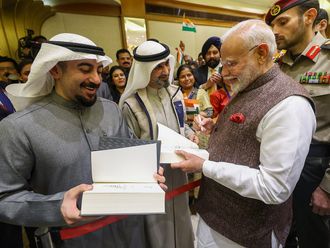Agra: Hundreds of young and old eco-activists turned up at the Yamuna ghats in this Taj city yesterday morning to pick up trash, mostly polythene bags, to mark the start of World Water Week (March 18-25).
A joint initiative of the Rivers of the World Foundation and the Braj Mandal Heritage Conservation Society, the trash clean-up programme "was launched to pressure the new rulers of Uttar Pradesh to give top priority to cleaning up of rivers and community ponds".
Programme coordinator Shravan Kumar Singh told IANS: "UP Chief Minister Akhilesh Yadav is known for his love for environmental and nature conservation programme. Through our clean up exercise today we have sent out a strong message — that we want the cleaning up of Yamuna to be taken up at the earliest and on war-footing."
Human rights activist Naresh Paras said: "How long will governments continue to neglect these critical issues that directly touch our lives and health."
Another activist, Anand Rai said: "The laws are there in place but no one seems interested in implementing them. The polluters of rivers and ponds must be punished publicly. Yamuna has been reduced to a huge sewage canal, the flood-plains are under encroachment and the open drains are emptying directly into the river."
Responsibility
Registrar of Central Hindi Institute Dr C.K. Tripathi told IANS: "We have to sensitise the people of the Taj city and get them back to the river. They have forgotten there is a river in the city. Its our collective responsibility to ensure that our water resources remain clean and pure."
Mahant of Mankameshwar Math, Yogesh Puri, said: "The religious leaders must wake up and tell their followers that to pollute the river was the ultimate sin. They should not be throwing garbage and domestic waste into the river."
The trash clean-up programme was undertaken close to the controversial Taj Corridor, sandwiched between two world heritage monuments, the Taj and the Agra Fort.
Wake Up Agra president Shishir Bhagat said: "If they can not clean up the river close to such great monuments from which the government agencies and the tourism sector earns millions of rupees annually, what hope is there that they would do anything tangible or revolutionary to save Yamuna."
Many of the young activists saw the river for the first time and were scared to touch the water.
"Is this what they call a river?" asked young Neha Rajora, a mass communication student.
Home-maker Padmini with a group of women who helped the clean up exercise picking up trash, said, "We the citizens are equally responsible for pollution and for murdering a living deity worshipped by millions of Sri Krishna bhakts."












